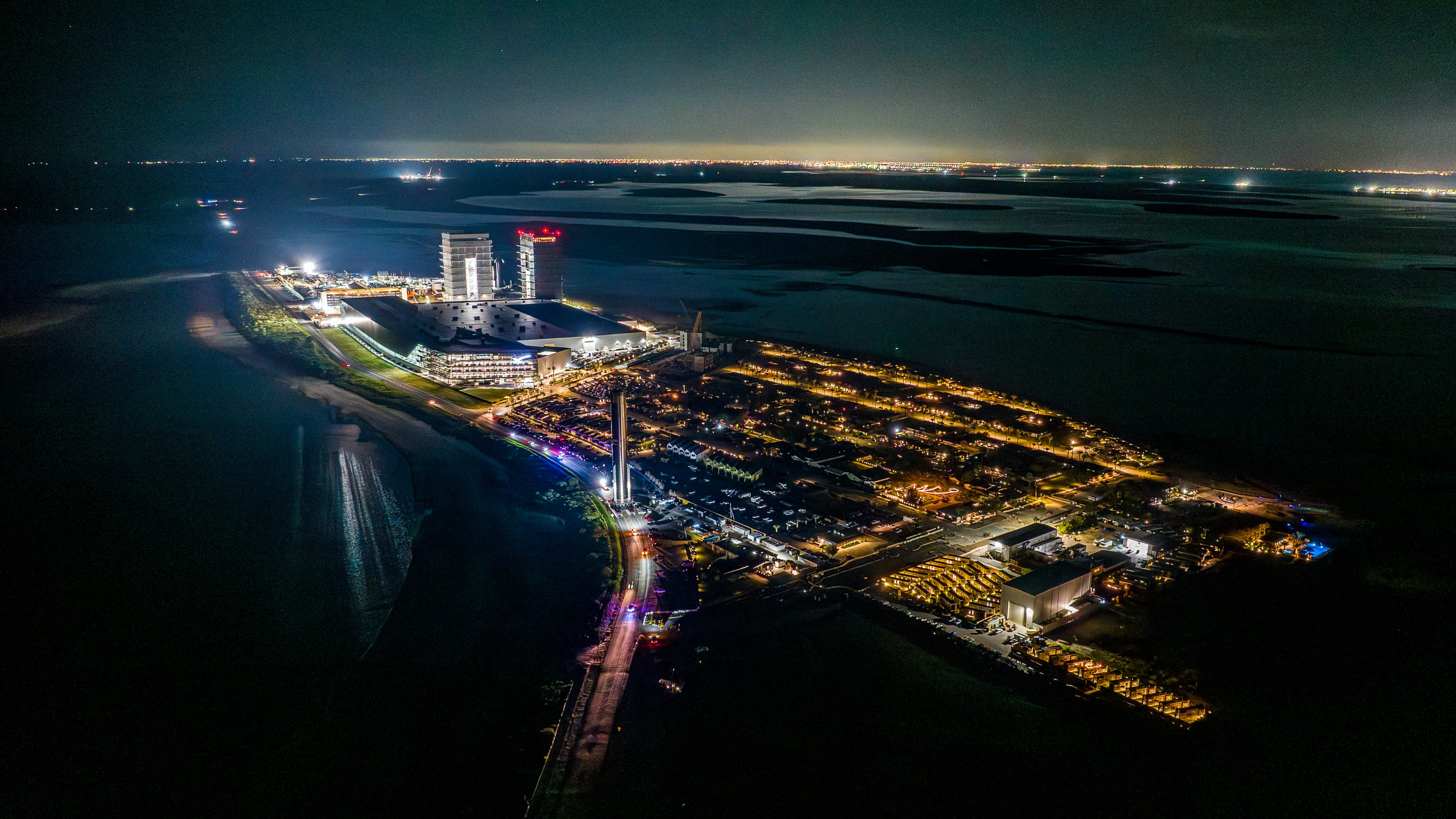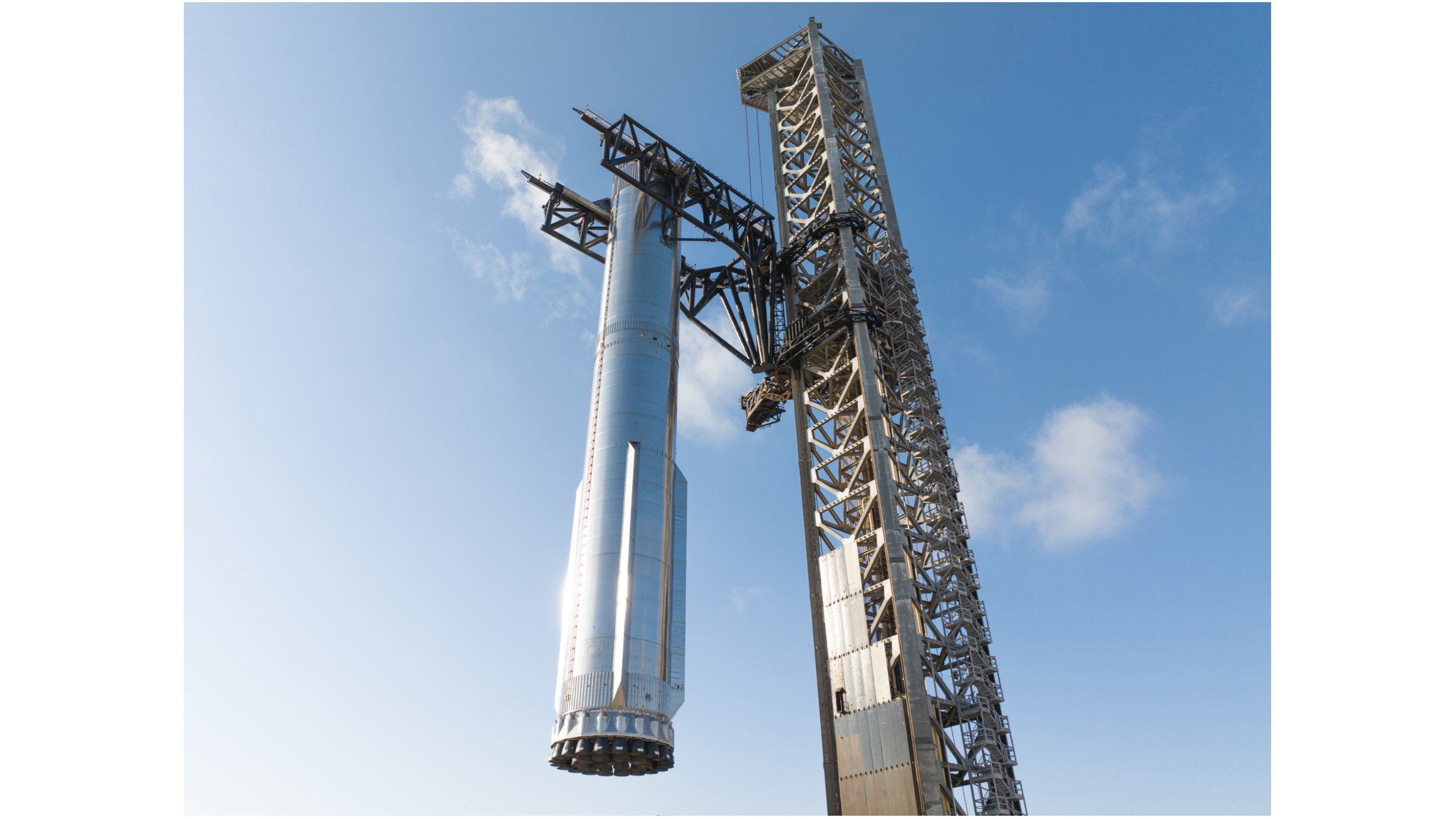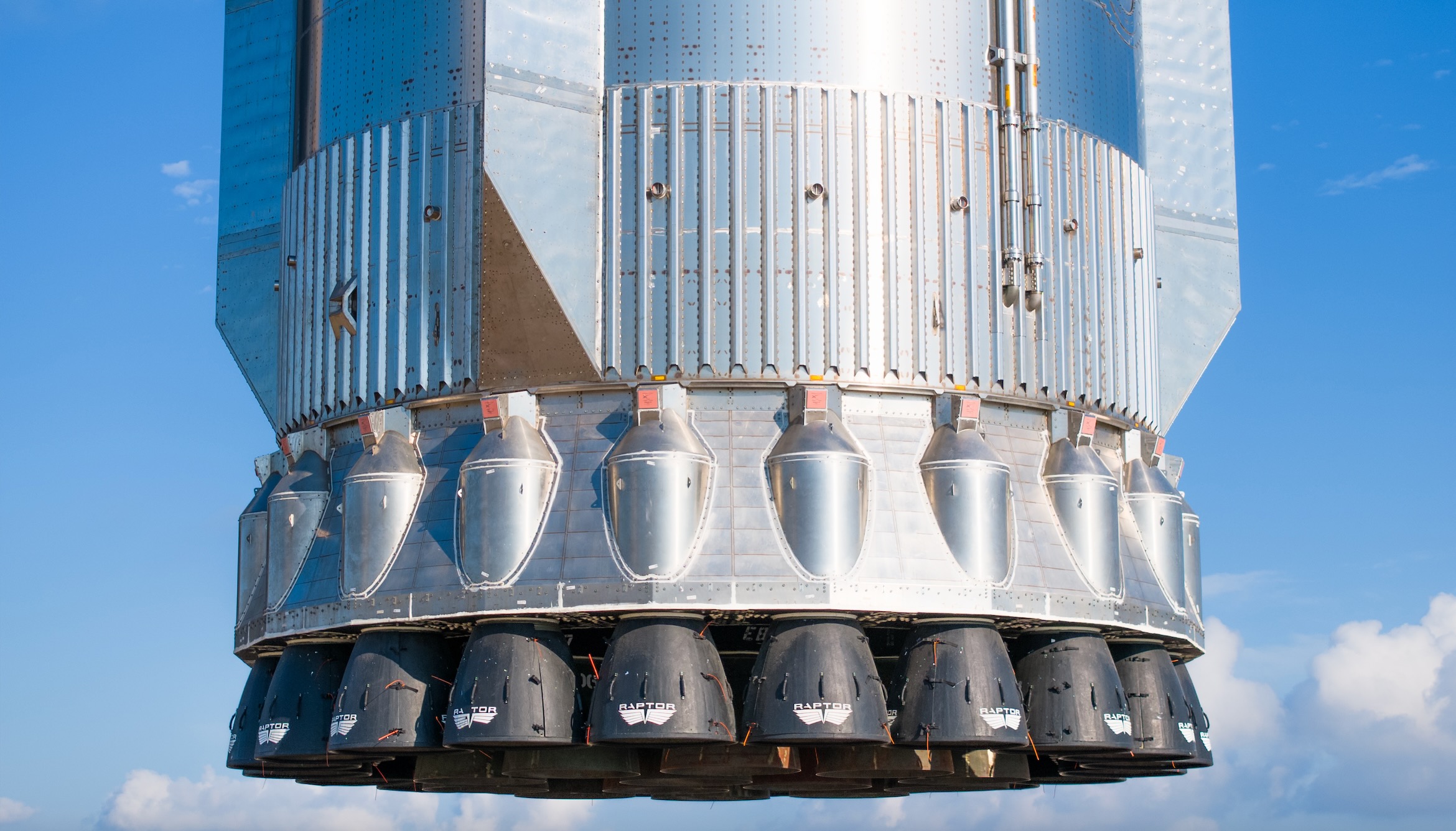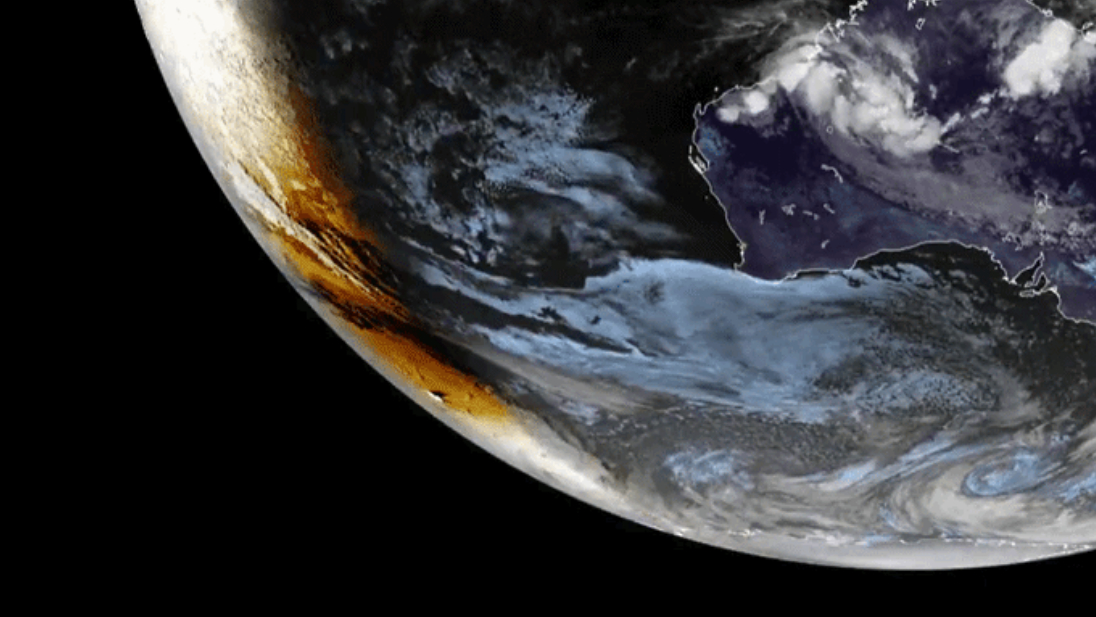SpaceX moves giant Super Heavy rocket to pad ahead of Starship Flight 10 launch (photos)

Breaking space news, the latest updates on rocket launches, skywatching events and more!
You are now subscribed
Your newsletter sign-up was successful
Want to add more newsletters?

Delivered daily
Daily Newsletter
Breaking space news, the latest updates on rocket launches, skywatching events and more!

Once a month
Watch This Space
Sign up to our monthly entertainment newsletter to keep up with all our coverage of the latest sci-fi and space movies, tv shows, games and books.

Once a week
Night Sky This Week
Discover this week's must-see night sky events, moon phases, and stunning astrophotos. Sign up for our skywatching newsletter and explore the universe with us!

Twice a month
Strange New Words
Space.com's Sci-Fi Reader's Club. Read a sci-fi short story every month and join a virtual community of fellow science fiction fans!
SpaceX has moved its giant Super Heavy booster to the launch pad ahead of Sunday's (Aug. 24) planned liftoff of the Starship megarocket.
The company announced the milestone Thursday (Aug. 21) in a post on X, which featured three photos of the move.
Sunday's launch, from SpaceX's Starbase site in South Texas, will kick off the 10th test flight of Starship, the fully reusable vehicle that SpaceX is developing to send people to the moon and Mars. Liftoff is scheduled during an hourlong window that opens at 7:30 p.m. EDT (2330 GMT; 6:30 p.m. local Texas time). You'll be able watch the action live on at Space.com, courtesy of SpaceX, at launch time.

Starship, the biggest and most powerful rocket ever built, consists of two elements — Super Heavy and a 171-foot-tall (52 meters) upper stage known as Starship, or simply Ship. Both are made of stainless steel and powered by SpaceX's next-gen Raptor engine — 33 for Super Heavy and 6 for Ship.
One of the photos in Thursday 's X post is a closeup of those engines, each of which has the word "Raptor" and a pair of stylized wings emblazoned on its nozzle.

Both Super Heavy and Ship have passed engine tests ahead of Flight 10's launch. SpaceX will next transport Ship to the pad at Starbase and stack it atop Super Heavy using the launch tower's "chopstick" arms.
Sunday's flight will be the fourth of 2025 for Starship. On all three of this year's launches, SpaceX has lost Ship prematurely — twice less than 10 minutes after launch, with the third failing during its reentry to Earth's atmosphere.
Breaking space news, the latest updates on rocket launches, skywatching events and more!
If all goes to plan on Sunday, Super Heavy will make a controlled splashdown in the Gulf of Mexico and Ship will come down in the Indian Ocean, off the coast of Western Australia.

Michael Wall is a Senior Space Writer with Space.com and joined the team in 2010. He primarily covers exoplanets, spaceflight and military space, but has been known to dabble in the space art beat. His book about the search for alien life, "Out There," was published on Nov. 13, 2018. Before becoming a science writer, Michael worked as a herpetologist and wildlife biologist. He has a Ph.D. in evolutionary biology from the University of Sydney, Australia, a bachelor's degree from the University of Arizona, and a graduate certificate in science writing from the University of California, Santa Cruz. To find out what his latest project is, you can follow Michael on Twitter.
You must confirm your public display name before commenting
Please logout and then login again, you will then be prompted to enter your display name.
